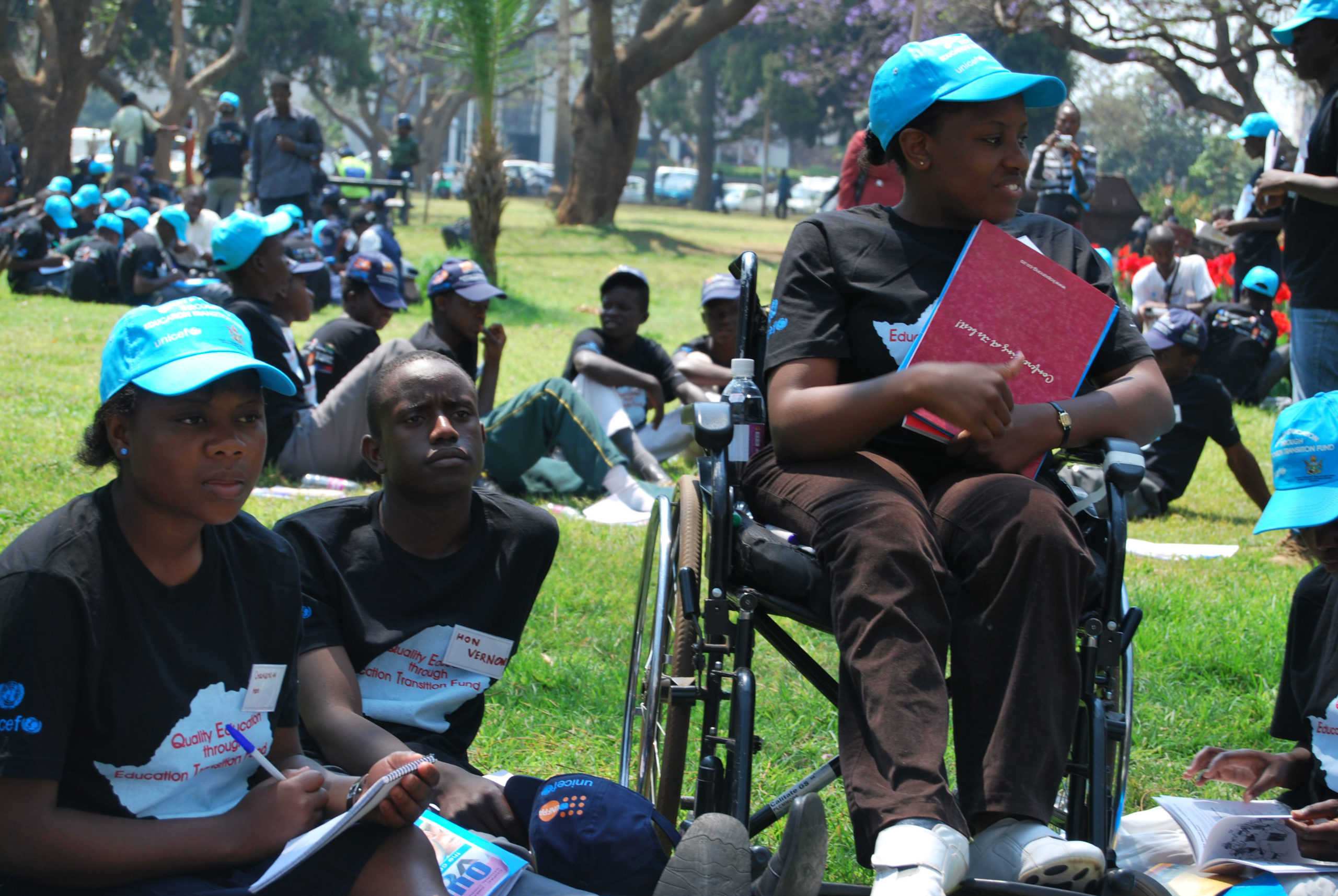Persons with disabilities (PWDs) rarely attain political positions in Zimbabwe. The scenario is that of PWDs as mere participation as voters rather than as candidates contesting for political position. Voting gives people with disabilities a stronger political voice. People with disabilities who vote in elections show the public that they are equal citizens but there is need for PWDs to contest for public office posts. Access and inclusion of PWDs in the electoral processes seems to be regarded as a charity issue until notably in 2013.
There are several factors that impede PWDs political representation namely stigmatization and negative social perception regarding the capabilities of PWDs; lack of resources including financial and logistical support required for effective campaigning as candidates; accessibility challenges relating to built environments where for instance voting booths are not user-friendly for PWDs that use wheelchairs; communication and information access and poor educational backgrounds.
The Constitution prohibits discrimination of PWDs. This should go a long way in ensuring that PWDs are fully and effectively included in political participation as alluded to not just as voters but also as candidates. The Constitution further contains a dedicated section on the rights of PWDs in section 83. Under the section, the State has an obligation to take appropriate measures, subject to resources available, to enable PWDs to become self-reliant, to live with their families and participate in social, recreational activities, to protect them from all forms of exploitation and abuse, to give them access to medical, psychological or functional treatment, to provide special facilities for their education and to provide State-funded education and training.
There are legal frameworks and international standards for PWDs such as the United Nations Convention on the Rights of Persons with Disabilities (CRPD), adopted by the General Assembly in 2006 that provides the legal basis and international standards for the full participation of persons with disabilities in public life.
Articles 12 and 29 takes into account the rights of PWDs to vote and be elected and provide for their equal recognition before the law and for accessible voting facilities, procedures, and materials. These are particularly relevant for ensuring equal participation and inclusion of PWDs in elections if fully implemented. Once PWDs begin to fully enjoy such benefits enshrined in the Constitution and international conventions they will emancipate and take control of their political rights fully.
When designing an election inclusion strategy and activities, the Zimbabwe Electoral Commission (ZEC) should continue consulting the local disability community regarding its interests, inclusion and representation on its preferred terms. Citizen election efforts that aim to promote an inclusive electoral process should look beyond mere voting.
PWDs and disabled persons organizations (DPOs) should be included in all aspects of programming and observation activities, including as candidates, coalition partners and mainstream citizen observers. In 2013 National Association of Societies of the Handicapped (NASCOH) is on record saying 20 percent of PWDs in Zimbabwe had no identity documents and could not participate in important processes such as referendums and general elections.
In a final project compilation report in 2014, NASCOH, however, noted that it was encouraging that during the 2013 harmonised elections it was able to field 326 PWDs who were duly accredited as observers with assistance from Zimbabwe Election Support Network (ZESN), National Association of Non-Governmental Organizations (NANGO) and ZEC. Another milestone was that for the first time in the history of elections in Zimbabwe ZEC employed 95 polling officers with disability including one who was employed as a presiding officer in Mudzi district.
There is however, need to turn some of these former polling officers into actual candidates for various posts during the 2018 harmonised elections and not wait for the appointment of a representative of PWDs in the Senate by the President who become lone figures in the Upper House without anyone else who truly understands the situation of PWDs.
The International Foundation for Electoral Systems (IFES) in a manual titled: “Equal Access How to Include Persons with Disabilities in Elections and Political Processes” identified 4 main ideas of ways to help people with disabilities to take part in politics which can be localized to work in Zimbabwe. 1. Provide training about politics to people with disabilities and disability organizations. 2. Support governments and people working in politics to develop policies and partnerships that will help more people with disabilities take part in politics. 3. Involve organizations for people with disabilities in developing education campaigns about voting for the public. 4. Help political parties to include people with disabilities during election planning and preparations. There are already some commendable efforts being done by NASCOH and other DPOs in this regard although more need to be done with the support of all stakeholders like ZEC and civil society organizations.
In conclusion PWDs require assistance and support from all stakeholders to continuously improve on their endeavours to fully participate in the political processes. Finally, l would like to commend Liberia for sparing a thought for the visually impaired during the just ended general elections. They followed Rwanda, which did the same in August presidential election where there was a ballot paper for blind voters. Probably ZEC will provide a Braille ballot paper in the next election due in 2018.






